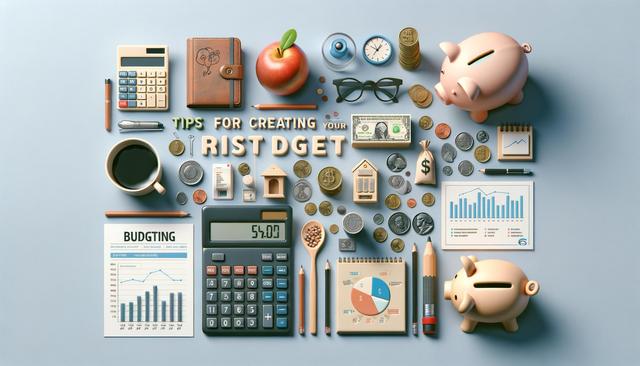Simple Strategies for Building Your First Budget
Creating a personal budget is a smart first step toward gaining control of your finances.

Understand Your Financial Landscape
Before you start drafting a budget, it’s important to get a clear picture of your current financial situation. This means gathering all your income sources and fixed expenses. Fixed expenses include items like rent, insurance, and loan payments, while income refers to your regular earnings after taxes. Understanding this balance will help you make realistic decisions about how much you can afford to spend or save.
Start by tracking your income and expenses for at least one month. Record every transaction, no matter how small. Apps or spreadsheets can simplify this process and give you a better understanding of your spending habits. The goal is to identify patterns in your financial behavior so you can make informed decisions when you build your budget.
Set Clear, Achievable Goals
Budgeting is more effective when it’s tied to specific goals. Before allocating your funds, identify what you want to accomplish. Do you want to pay off debt, save for a vacation, or build an emergency fund? Clear goals provide direction and motivation, making it easier to stick to your budget over time.
Consider breaking your goals into short-term, mid-term, and long-term objectives. For example:
- Short-term: Save $500 for a new phone within three months.
- Mid-term: Pay off a $2,000 credit card balance in one year.
- Long-term: Build a $10,000 emergency fund over the next three years.
Having measurable goals gives your budget a purpose and helps you prioritize where your money should go each month.
Choose a Budgeting Method That Works for You
There are several budgeting methods to choose from, and the right one depends on your lifestyle and preferences. Some popular options include:
- Zero-based budgeting: Assign every dollar to a category so your income minus expenses equals zero.
- 50/30/20 rule: Allocate 50% of your income to needs, 30% to wants, and 20% to savings and debt repayment.
- Envelope system: Use cash envelopes for different spending categories to limit overspending.
Experiment with different approaches to see which one fits your habits and financial goals. Whichever method you choose, the key is consistency. Review and adjust your budget regularly to reflect any changes in your income or expenses.
Track, Review, and Adjust Regularly
Creating a budget is not a one-time task. It requires regular maintenance to stay effective. Once your budget is in place, track your spending daily or weekly to ensure you’re staying within your limits. This helps you catch any unplanned expenses before they spiral out of control.
Set a specific time each month to review your budget. Ask yourself:
- Did I stick to my spending limits?
- Were there any unexpected costs?
- Can I adjust my budget to better meet my goals?
Life is unpredictable, and your budget should be flexible enough to accommodate changes. Don’t hesitate to make adjustments if your income shifts or if you reach a financial milestone. The goal is progress, not perfection.
Build Habits That Support Your Budget
Sticking to a budget becomes easier when you build daily habits that align with your goals. These habits can help you avoid impulse spending and stay focused on your financial priorities. For example, planning your meals for the week can reduce unnecessary food expenses, while setting up automatic transfers to a savings account ensures you save consistently.
Other supportive habits include:
- Reviewing your bank account regularly to monitor transactions.
- Using shopping lists to avoid impulse purchases.
- Setting spending limits for non-essential categories like entertainment or dining out.
Small changes in behavior can have a big impact over time. By embedding budgeting into your daily routine, you make it a natural part of how you manage money.
Conclusion: Start Simple and Stay Consistent
Creating your first budget is a powerful step toward financial stability. By understanding your financial situation, setting clear goals, choosing a suitable method, and developing supportive habits, you set yourself up for long-term success. Remember, budgeting is a journey, not a one-time event. Stay flexible, be patient with yourself, and make adjustments as needed. Over time, the discipline and awareness you build will lead to greater financial confidence and independence.